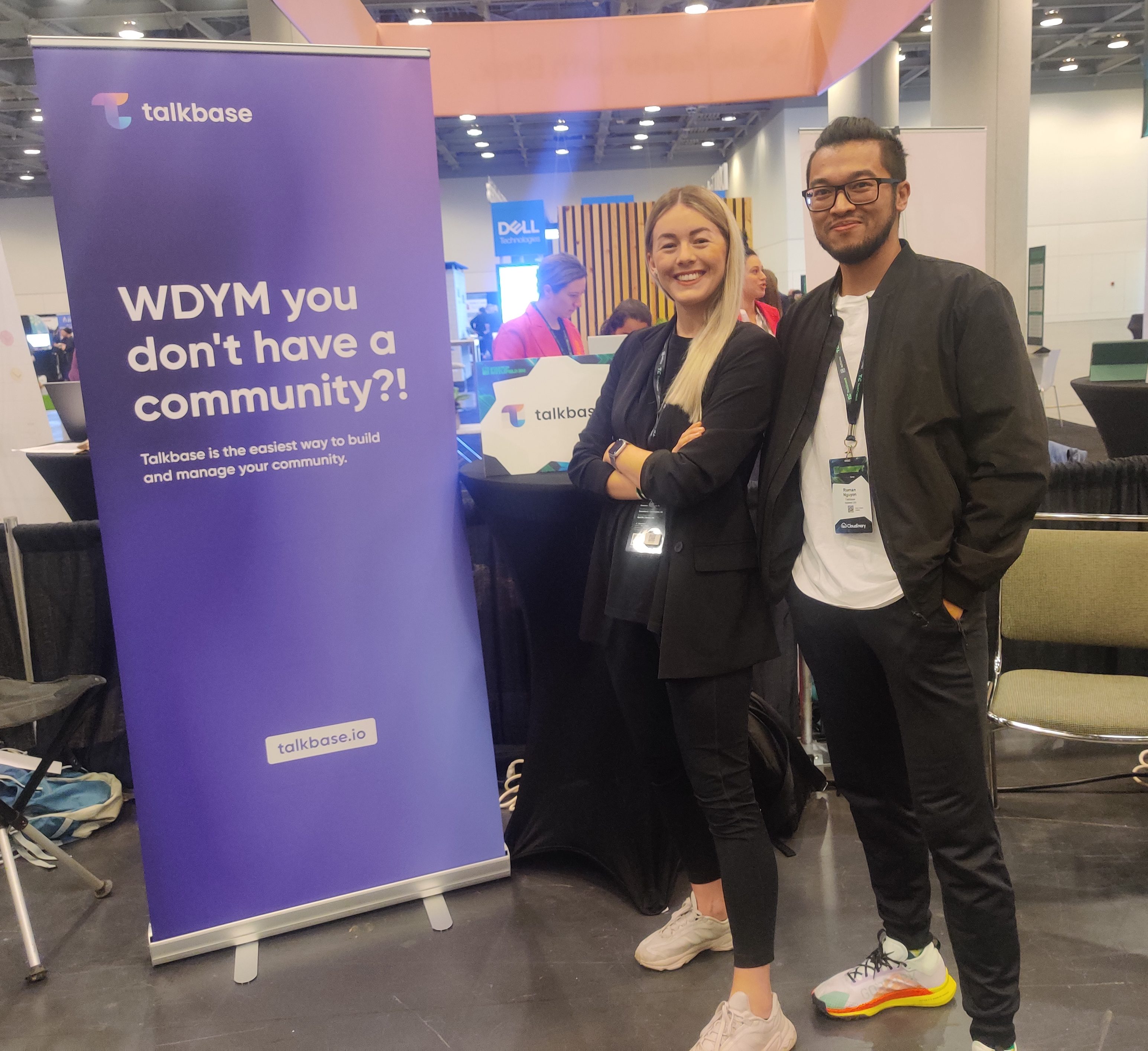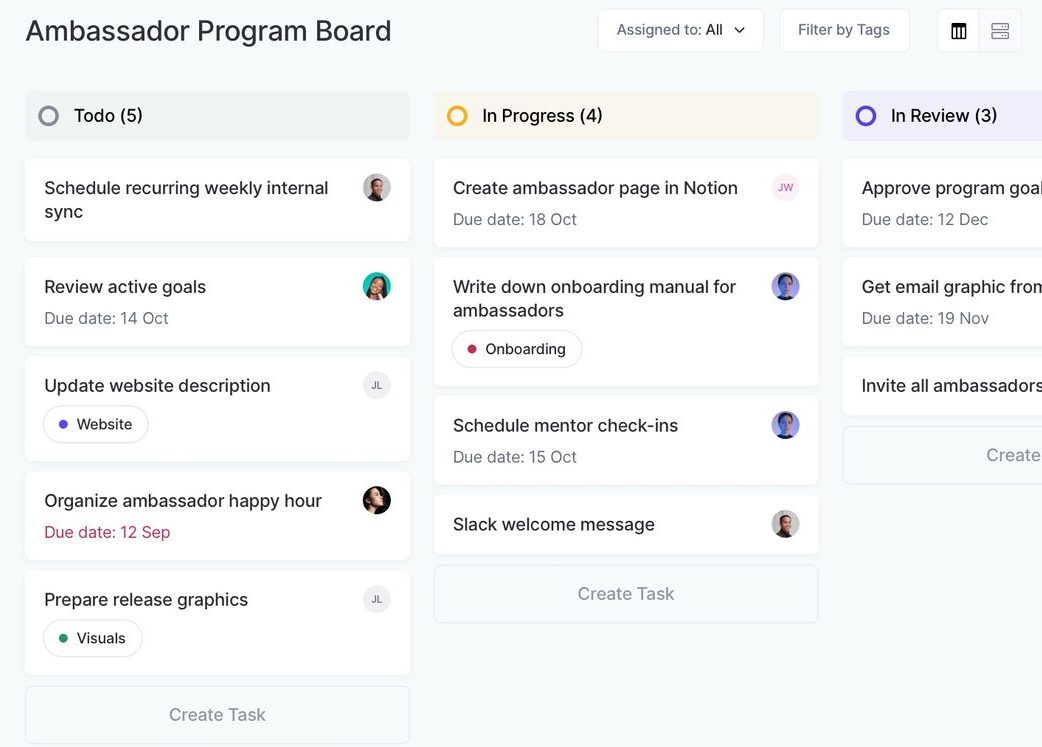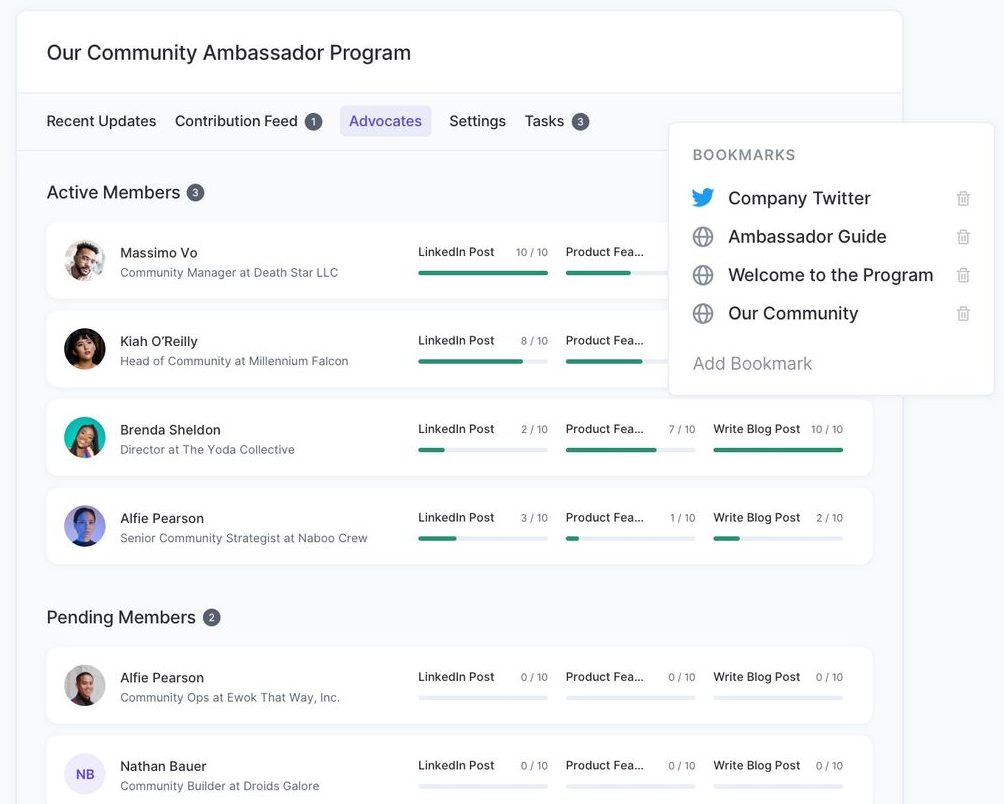A new startup is setting out to help companies build and harness communities around their products, enabling them to side-step multiple disparate tools and manage everything in a single platform.
Founded out of the Czech Republic in 2021, Talkbase launched out of stealth just a couple of weeks back, backed by $2 million in pre-seed funding from a mixture of Czech and U.S. funds, including J&T Ventures, Credo Ventures, Mxv Capital and Plug & Play Tech Center. The Prague-based company represents one of the Battlefield 200 startup exhibitors at TC Disrupt this week, and TechCrunch caught up with the co-founders to get the lowdown on what Talkbase is all about, and the problem that it’s looking to solve.
Community meets product
Much has been written about the various strategies companies pursue for growth, from traditional approaches such as marketing-led and sales-led, through to what is arguably one of the biggest buzzwords of today — product-led growth (PLG), where the product itself does the selling and onboarding.
However, community-led growth is also an increasingly popular approach to driving new and repeat business organically — this is where a product’s users serve as advocates and a support network for other would-be customers. Community-led growth is actually closely aligned with product-led growth, insofar as a user has to first be made aware that a product exists, and then convinced that it’s worth checking out and remaining an active user. The “community” that performs this task can be anything from social media influencers and review sites, to dedicated forums such as Stack Overflow, Reddit, Slack or Facebook Groups.
If companies can harness these types of channels through active engagement, and get millions of people banging the drum about their product, they can sit back (more or less) and focus on building rather than selling. As TechCrunch wrote last year, in many ways, the chief community officer is the new chief marketing officer.
“I think in some ways, they [community-led growth and product-led growth] go hand-in-hand, because in order to be product-led, and in order to build an amazing product, you really need to work close with your users,” co-founder and CEO Klara Losert said. “And if you want to work with them well, you build a community around your product.”

There are many examples of startups that have risen to billion-dollar behemoths off the back of community-led growth, from commercial open source companies like MongoDB (which actually isn’t open source any more) to popular creator-focused companies such as Figma (currently in the process of being acquired by Adobe for a cool $20 billion) and $40 billion unicorn Canva, which happens to be one of Talkbase’s early customers.
“Community-led growth is one of the most popular growth channels in tech, but there is no platform to support it,” Losert said. “Community managers are responsible for growth, hiring, or retention programs — yet they spend most of their time in Google Sheets, Airtable, forms and other platforms to launch one single program.”
A “program” could mean a one-off event, a series of content (e.g. video demos) or an ambassador program that coaches brand advocates on how best to spread the word. Community managers might use any number of platforms to manage their community, such as Slack, Discord or HubSpot, and this essentially is where Talkbase enters the fray — it bridges various community management tools, bringing everything under one roof.
For example, Talkbase packs task-management and collaboration tools similar to Trello or Asana, allowing managers to assign tasks, and teams to work together on programs to meet deadlines.

Elsewhere, Talkbase includes features for creating, managing and scheduling events, such as supporting attendee registrations and managing moderators or speakers.
On top of that, Talkbase has purpose-built advocacy management tools for customizing and tracking their goals, and collating feedback for potential new projects. This can also be used to identify existing members of the community (e.g. on Twitter or LinkedIn) who are already vocal supporters of a particular product, making it easier for companies to reach out and engage with directly.

It’s worth noting that there are a number of other platforms out there that have raised significant VC money to power community-led growth at companies of all sizes. Commsor recently raised a $50 million Series B, while Common Room secured $52 million. Threado, meanwhile, raised a slightly more modest $3.1 million seed round.
It’s difficult to ignore the parallels between Talkbase and these other companies, in terms of how they pull together the different strands that constitute a “community.” But Talkbase says that it’s moving beyond the incumbents by pulling together all the various elements that constitute a community manager’s toolset. While it’s focused mostly on managing events and company ambassadors for now, it’s adding more features to the mix, enabled in part by its recent seed round of funding.
Talkbase is tooling up to replace survey tools such as Typeform; CRMs or spreadsheet tools such as Google Sheets or Airtable; event publishing tools such as Eventbrite; and even outbound communication tools such as Mailchimp — Losert said that they are currently in the process of developing their own newsletter tool.
In terms of pricing, the company officially unveiled its various plans this week, starting from “free” for a basic tier with restrictions, through $68 per month for the basic plan and a soon-to-launch Pro plan that opens everything up for $680 per month.































Comment